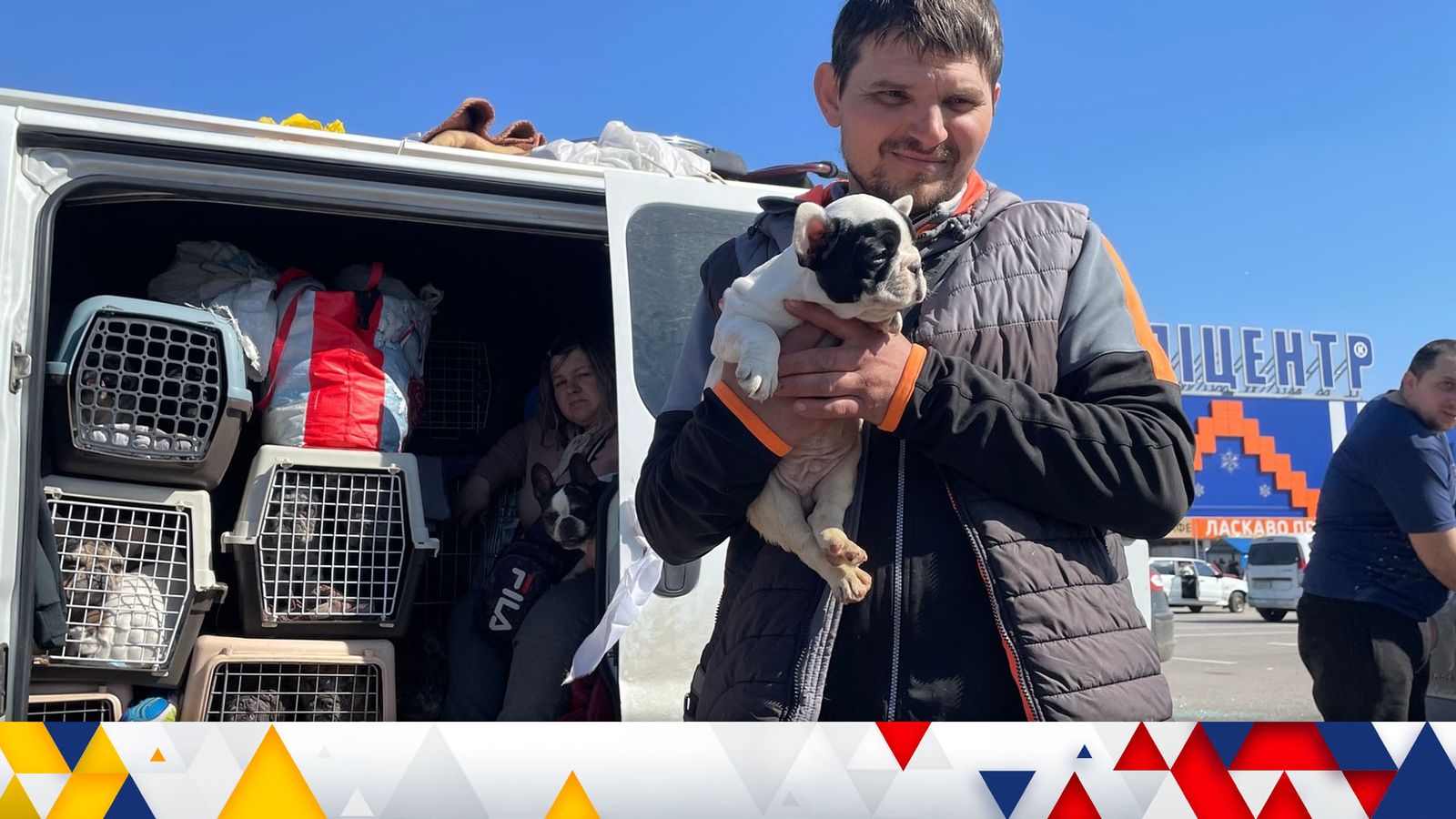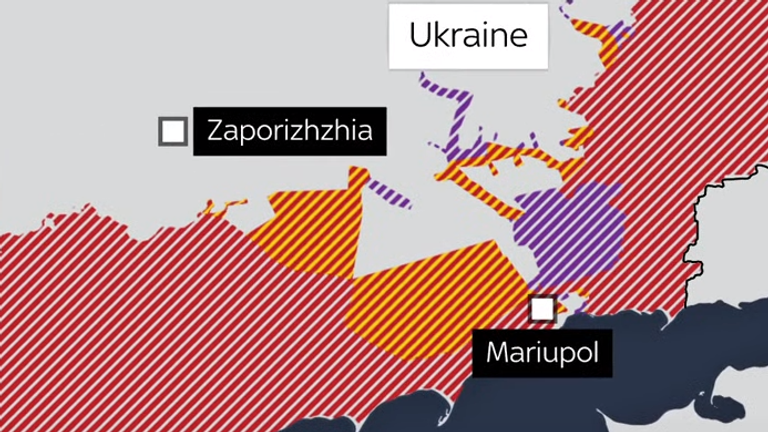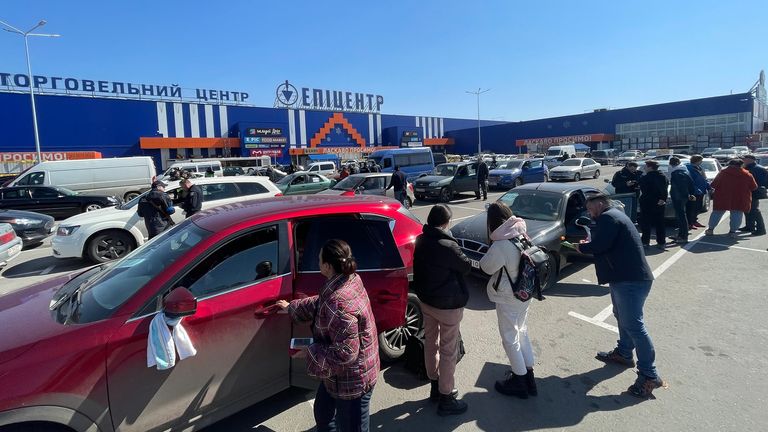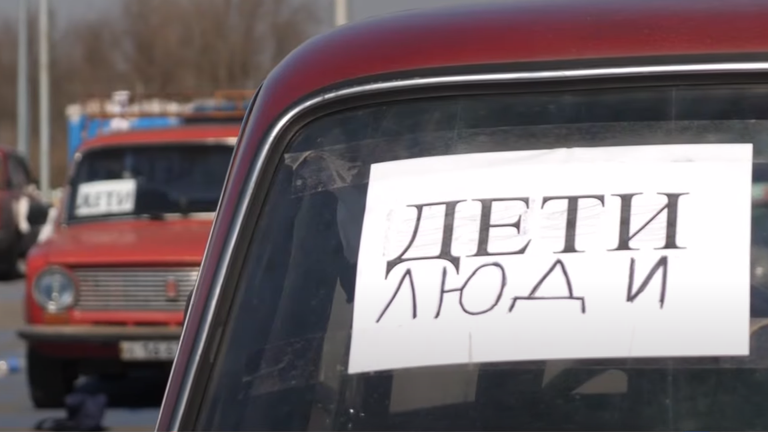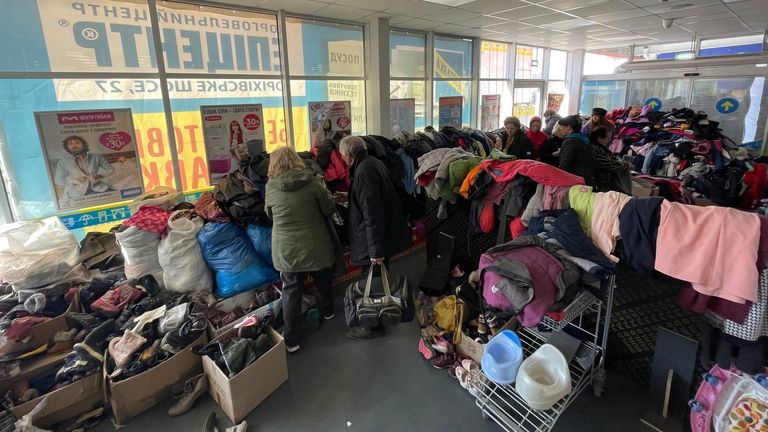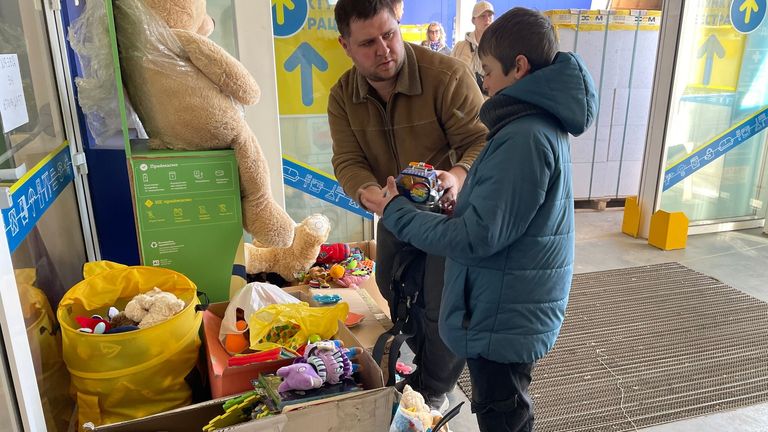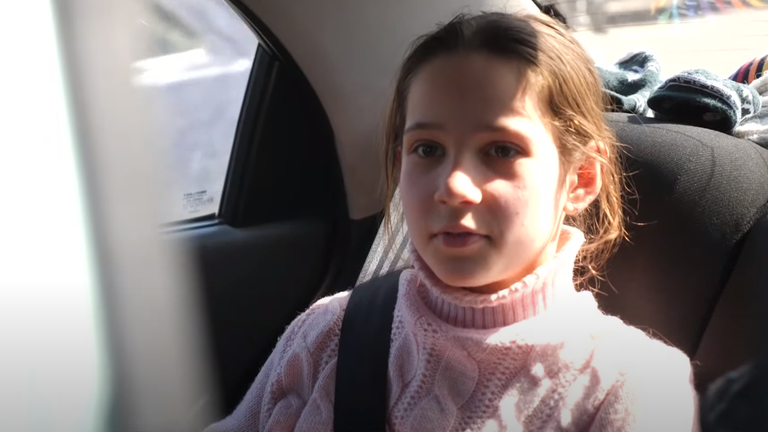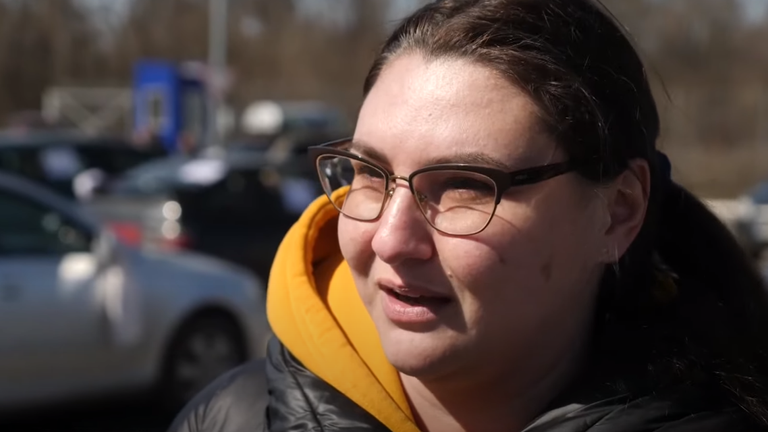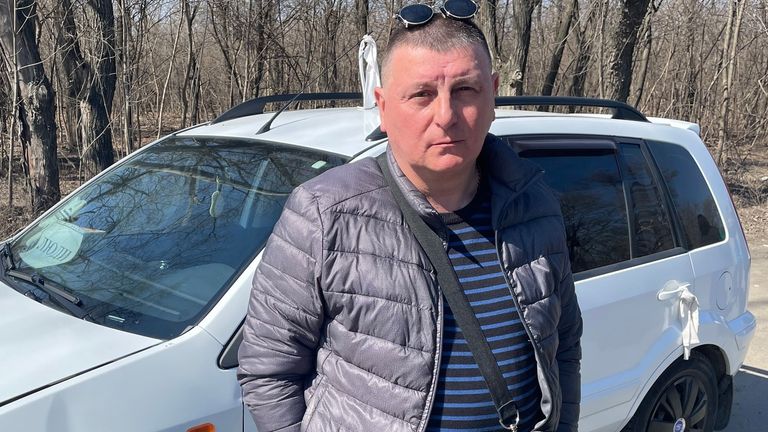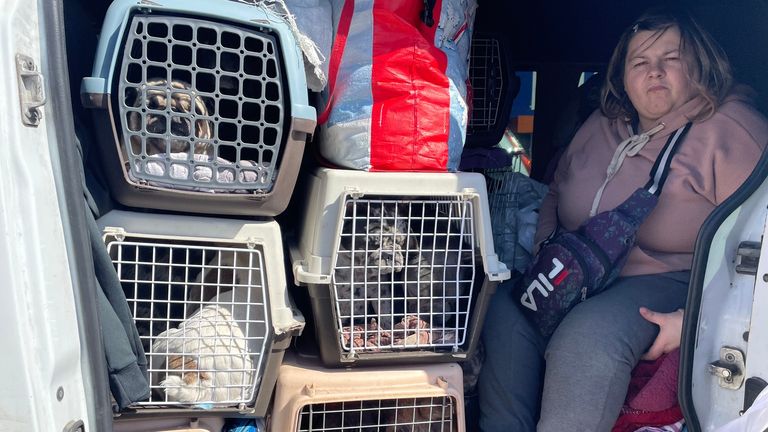It is an unremarkable spot, a large car park in front of a Ukrainian supermarket called Epicentre. Yet it means a lot to the people of Mariupol.
In fact, it’s a beacon of light in the spring sunshine, marking the end of a horrific ordeal for tens of thousands of people.
“Not just a parking lot is it?” I said to a literature professor called Iryna Tudua, who had just arrived from the bombed-out city in the family car.
“The sun, the sky,” she said, looking into the air. “Thanks God.”
Ukraine news live: NATO to provide four more battle groups in Eastern Europe
“It was a really strong, painful experience, but now we have to start our lives from the beginning,” said Ilya Kadava, who worked as an engineer at a steel plant in Mariupol called Illych.
The facility has been totally destroyed.
Some of an estimated 36,000 people to reach this point in the city of Zaporizhzhia, we watched them arrive in a procession of battered-looking cars.
Most had a sign in the windows saying “children”.
At 300 km (186 miles), the journey from Mariupol is relatively short, but it’s dangerous and unpredictable and can take days to travel the distance.
We watched a woman called Marina Prylutska coax her car into the parking lot with her daughter Alisa, her mother Helena, and mother-in-law Iryna, crammed into the back.
A month of war in Ukraine – what happens next?
She said many of those who remain in Mariupol are desperate to get out, but there are few vehicles and very little fuel.
“People are selling fuel for $200 (£151) for one can, and you would be very happy to find any fuel.
“Cars have been destroyed, they are full of bullet holes, and if somebody leaves a car then someone will take the fuel or the wheels – any way to get out.”
‘It was terrifying… our house was shaking’
After negotiating 15 checkpoints manned by Russian soldiers, Marina said she was hugely relieved to be safe.
I asked her nine-year-old daughter, Alisa, what it had been like at home.
“It was terrifying in Mariupol, we were living on the eighth floor and our house was shaking, this way, that way,” she said.
“Then we went to my grandmother on the fourth floor, and we were sitting in the bathroom and the walls were shaking, and the creams fell down from shelves.”
Follow the Daily podcast on Apple Podcasts, Google Podcasts, Spotify, Spreaker
Iryna Tudua and her family took six days to get to Zaporizhizhia.
They ran out of petrol halfway, and it took time to find enough to get out of Russian-occupied territory.
Nevertheless, she said she could not spend another minute in Mariupol: “I don’t know how to really how to describe it.
“You don’t know if you will be alive in a minute or not, if your son will be alive. One night he said to me – sorry…” she said, fighting back tears.
“He asked me, ‘will we see my birthday in August or not, will I be alive?’ and I didn’t know what to say to him.”
On the other side of the street, we found another convoy of cars hoping to make the trip back to Mariupol.
Their owners want to pick up family or friends – or bury those killed in the fighting.
‘If I find a leg, I find a leg – but I will bury her’
Alexander Kirillov’s mother lived in a building that suffered a direct hit by an artillery shell.
Under heavy fire, he said he was not able to extract her from the rubble and had to leave her neighbourhood.
He broke down as he began to speak to us.
“It’s been cold,” he says, “very cold. I doubt she’s alive, if I find a leg, I find a leg – but I will bury her.”
Some families bring their documents and the clothes on their back, but others, like the Lashenkos, have brought their business along with them.
They breed French bulldogs and pugs, and had managed to fit 50 dogs between two vehicles.
“Not much room,” I said to Kateryna Pen, who was surrounded by yelping hounds in the back of the van.
“No, not much space,” she said. “We have the dogs in our arms and legs, but we are all together, small puppies, we are all together.”
“How did you keep them alive in Mariupol?” I asked Viktor Lashenko.
“Because they were the most important thing for us,” he said.
“They were sleeping with us in one bed, not in cages, living in our house, [they are] like children for us, we didn’t even lose one dog, we took them all.”
